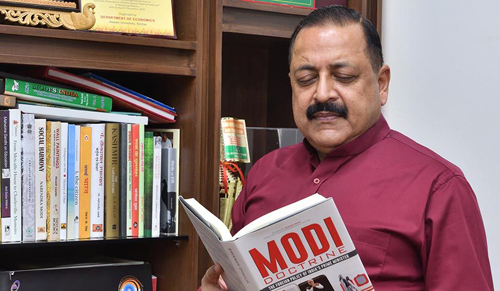Namrata Biji Ahuja
How will the Goods and Services
Tax impact India’s economic future?
It is a revolutionary reform. It is for the first time in 70 years that there has been a true reassertion of our commitment to the federal structure. This will bring in a new culture of cooperative federalism.
What about the transition phase? Do you foresee any problems?
Initially, for three to four months, there will be problems of transition because of an initial hesitation. But, that is normal. Inherently, human beings are status quo-ist. So, there might be a short period where there may be paucity of certain goods and fluctuation of prices. But, in the long run, it will not only streamline prices, but also reduce prices for certain goods.
From the point of view of the consumer, there is a long list of items that have been exempted, including dairy products like milk, buttermilk and curd, cereals like wheat and common household items such as toothpaste and tooth powder. So, this is going to be a win-win situation.
It will also bring in a huge behavioural change in the Indian society. The GST has got four slabs-5, 12, 18 and 28 per cent. For example, luxury cars are placed at 28 per cent. If we can spend on dining or partying, why should we have a problem paying tax? With the enlargement of the tax pool, the state exchequer will get reinforced and provide better funding to pro-poor schemes. So, the poor man will benefit and tax evaders will become tax payers.
Another related advantage is that it will reduce bribery and corruption. For example, there have been inter-state taxes and large queues at toll booths, where people bribe to get through faster. All this will end.
Do you think the spat over the presidential candidate between the ruling party and the opposition hit the dignity of the chair of the president?
The opposition parties were slightly rattled; they had nothing against the candidate nominated by the BJP. Ram Nath Kovind is a candidate with immaculate credentials and, coming from a humble background, he represents the lowest of the lowest section of society. He is a role model for others to follow.
Home Minister Rajnath Singh said the Government will find a permanent solution to the Kashmir problem. Is it a political solution?
My take is that Jammu and Kashmir does not require any solution. I have always held the view that Jammu and Kashmir is as much an Indian state as Punjab, Uttar Pradesh or Tamil Nadu. There are problems in three or four districts. These problems have been initiated by a hostile neighbour, namely Pakistan, which has exported terrorism into the Kashmir valley. [This] is promoted by some political elements in the Valley who want to take forward their agenda. Kashmir is an integral part of India, and the only issue, if at all there is one, is how to retrieve the part that continues to be under the illegal occupation of Pakistan. Areas like Pakistan occupied Kashmir and Gilgit-Baltistan.
Like other princely states, when Jammu and Kashmir was handed over to India by the then Maharaja Hari Singh, the territory was much larger than what it is today as part of India. The Jammu and Kashmir we have today is just one third of the original princely state, and, therefore, the only pending issue is to restore it back to its original territorial integrity.
There has been talk of declaring Lok Sabha seats from Pakistan-occupied Kashmir.
Yes, there has been such a suggestion. Or even to allot 24 seats of the Legislative Assembly [to the region]. As long as we claim that part of Kashmir is being illegally occupied by Pakistan, there is merit in this su30ggestion.
What about talks with Pakistan? When can we expect any movement on that front?
That is not for me to answer. The Ministry of External Affairs has to take the call. They judge the situations and take cognisance of various inputs and devise a strategy from time to time.
Courtesy : The Week
Trending Now
E-Paper


